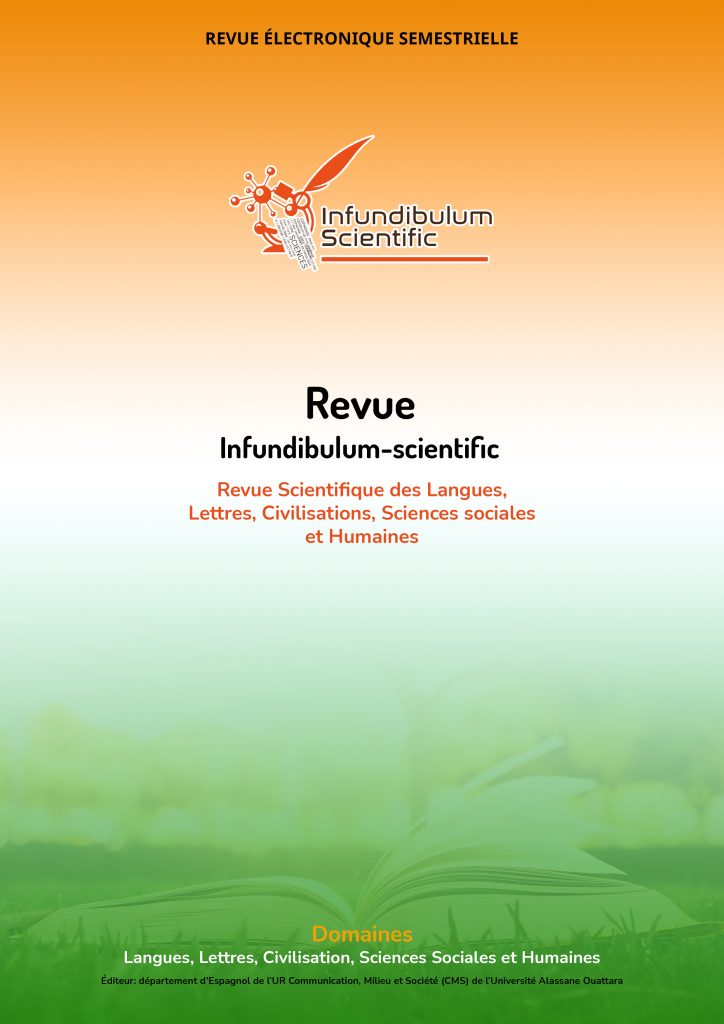DE LA COLONISATION À LA (DÉS) ASSIMILATION : L’EXPRESSION DU NATIONALISME GUINÉO-ÉQUATORIEN DE L’ENFANT-NARRATEUR DANS LAS TINIEBLAS DE TU MEMORIA NEGRA DE DONATO NDONGO-BIDYOGO
Résumé
Cet article met en évidence d’une part les stratégies idéologiques de colonisation, d’assimilation de l’enfant-narrateur à la culture occidentale et celles de sa désassimilation. Et d’autre part, il fait ressortir les mécanismes idéologiques et narratologiques qu’il utilise pour reconstruire son identité guinéo-équatorienne. Nous avons utilisé la critique postcoloniale et la narratologie pour comprendre non seulement l’idéologie d’asservissement de l’école coloniale, l’Église Catholique et l’internat, mais aussi connaître les stratégies idéologiques et narratologiques déployées par l’enfant- narrateur pour résister à ces structures.
Abstract
This article highlights on the one hand the ideological strategies of colonization, of assimilation of the child-narrator to Western culture and those of his disassimilation. And on the other hand, reveals the ideological and narratological mechanisms that he uses to reconstruct his Equatoguinean identity. We have used postcolonial criticism and narratology not only to understand the ideology of subjugation of the colonial school, the Catholic Church and the boarding school, but also to know the ideological and narratological strategies employed by him to resist those structures.

Mots-clés
Colonisation, assimilation, (dés) assimilation, nationalisme, roman hispano-africain postcolonial
